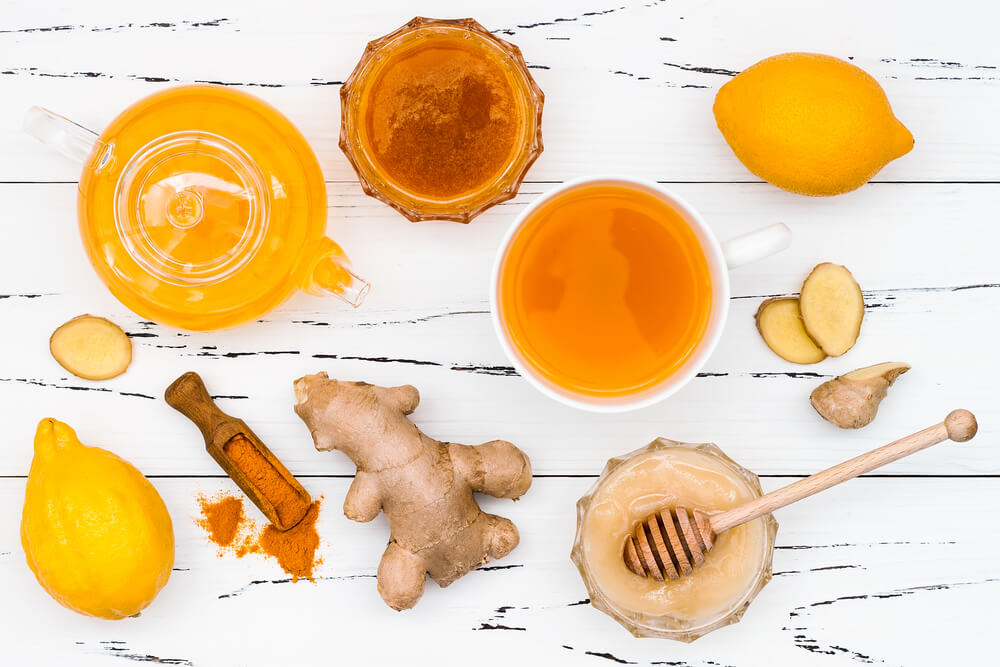Inflammation is a key component in your body’s defense systems. But under the influence of a poor diet or unhealthy lifestyle choices, this normal, beneficial immune response can run rampant. This is known as chronic inflammation, a condition linked with serious health conditions like obesity, diabetes, osteoporosis, cancer, heart disease, depression and Alzheimer’s.
Cutting back on foods that promote inflammation — such as red meat, sugars, trans fats, and refined carbohydrates — is a great start in reducing chronic inflammation throughout the body. Eating foods that combat inflammation as well can offer additional protective effects against the development of disease.
Here are a few anti-inflammatory foods you can easily add to your diet. They’re readily available in supermarkets and grocery stores, and make fantastic accompaniments and substitutes for the foods you already enjoy.
Berries
Nicknamed “nature’s candy”, many berries are rich in anthocyanins, a natural red pigment associated with lower levels of gut inflammation and insulin resistance. According to a 2014 review published in the Journal of Agricultural and Food Chemistry, while findings still differ from fruit to fruit, one conclusion remains: berries should be considered an important part of a healthy, disease-preventative diet.
Add strawberries, blueberries, blackcurrants and cherries to your weekly meal plan in smoothies, salads, desserts, or even as a refreshing snack on their own. If berries tend to be less available or affordable where you live, you can still get an anti-inflammatory fruit fix from the trusty old apple.
Turmeric
This centuries-old spice, featuring widely in Indian cuisine and Ayurvedic medicine, has proven to be a more potent anti-inflammatory than both ginger and a commonly prescribed anti-inflammatory drug. It’s all thanks to curcumin, the most active phytonutrient in turmeric, and is also found to have strong antioxidant and anticancer properties.
Turmeric is an easy ingredient to find, and an even easier one to include in your diet. And we love this organic Tumeric PuraThrive. You can also add fresh (grated) or powdered to soups, stews and curries, or blend a spicy summer smoothie with a cup of cultured full-fat yoghurt, a banana, a large pinch of turmeric, a little honey and lemon juice, and a dash of black pepper. If you’re not big on warm, earthy flavours, there’s always turmeric supplements in liquid or capsule form.

Avocado
Avocados are generally accepted as a nutritious food, but what makes them so special? Well, they’re buttery while lactose-free, flavoursome while low in salt, and rich in phytosterols, carotenoids and omega-3 fatty acids — compounds known for their anti-inflammatory effects.
The high (healthy) fat content of avocado means it’s one low-carb snack that can keep you feeling full. It makes an excellent condiment, dip, spread or additional ‘vegetable’ in a variety of dishes (a 2013 study observed clear benefits from adding avocado to burgers). And, of course, most of us don’t need an excuse to eat more guacamole.
Tomatoes
Rich in vitamin C, beta-carotene, lycopene and other nutrients, the humble tomato shows an impressive anti-inflammatory profile. A study in 2000 showed reduced inflammation in people with diabetes following consumption of tomato (in juice form). Similar protective effects were observed in a 2012 study in overweight and obese women, and another 2012 study in men and women of a healthy weight.
Be careful around tomatoes if you suffer from gout, a nightshade allergy, or Oral Allergy Syndrome. Otherwise, add tomatoes liberally to your daily meals. Always check the label when buying processed tomatoes (ie. in sauce or juice form) — look for salt-reduced products with little to no added sugar.
Olive oil
If you’ve ever been told to avoid inflammatory omega-6 fatty acids in favour for anti-inflammatory omega-3, you’ve only heard half the story. The human body actually needs a balance of both omega-6 and omega-3 fatty acids to function properly. However, our modern diets tend to contain less omega-3 than we need, throwing our nutrient balance out of whack.
In general, it’s wise to eat good sources of omega-3 fats — like flaxseed, salmon, walnuts and mackerel — but olive oil gets a special mention because of how easy it is to add to meals. Extra virgin olive oil, for example, can be used in many different types of salad dressings, as well as a replacement for butter and other processed dips. Refined olive oil holds up well under heated and oxidative conditions, making it a viable option for cooking in place of sunflower oil, canola oil, grapeseed oil and commercial lard.
You May Also Like…




